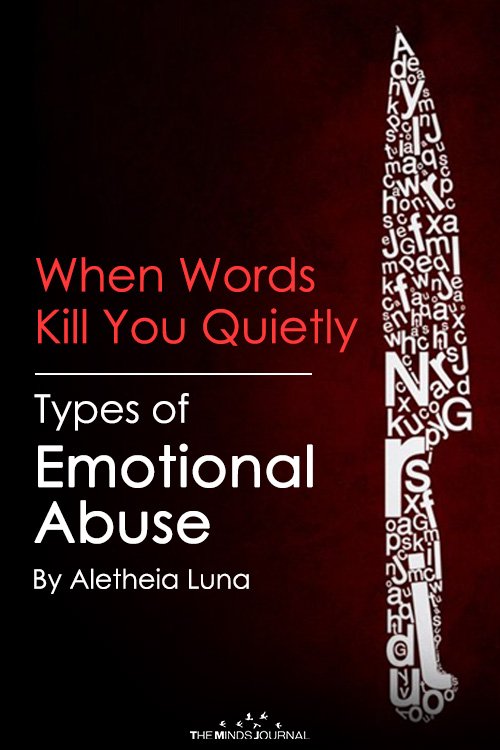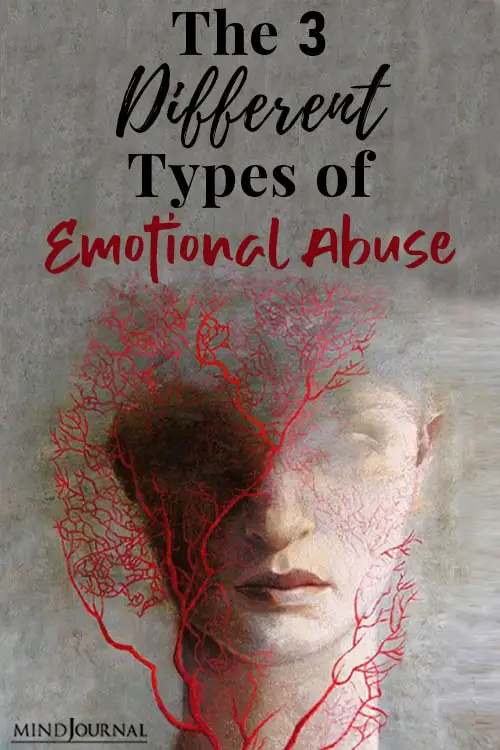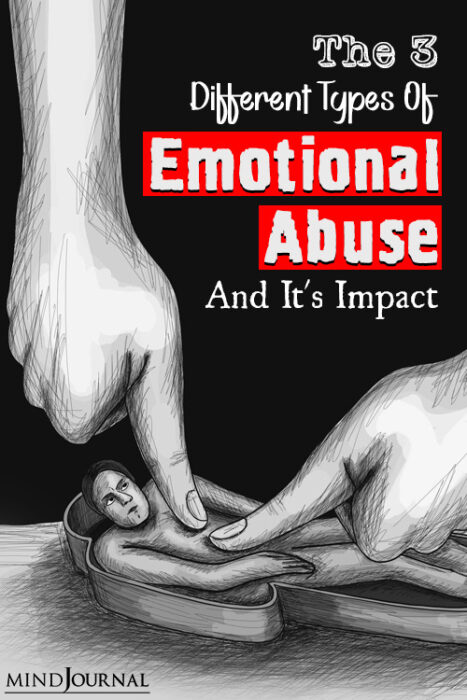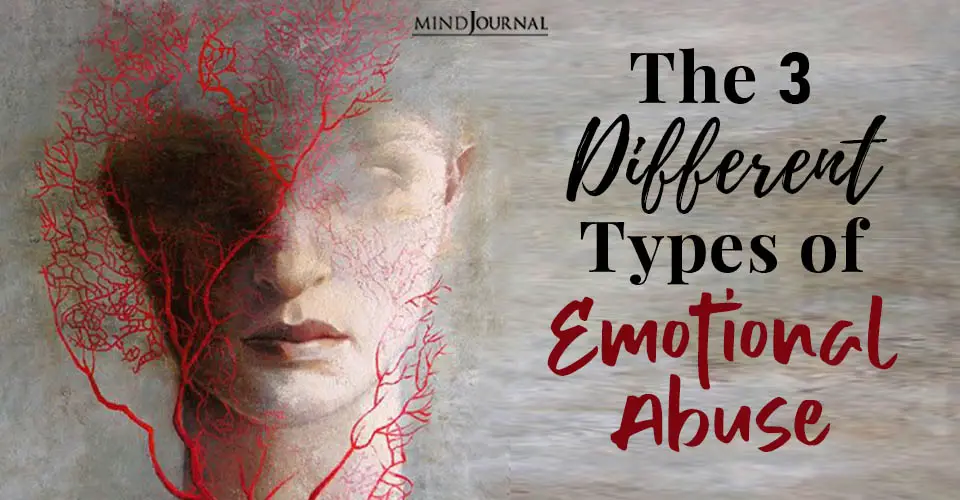When it comes to emotional abuse, there are different types of emotional abuse that can destroy a person’s sanity and mental well-being for good. Let’s explore the 3 types of emotional abuse and what they look like.
“Emotional violence is another kind of abuse … it’s not about words because an emotionally abusive person doesn’t always resort to using the verbal club, but rather the verbal untraceable poison.” ~ Augusten Burroughs
It was after reading the above passage in a book I recently completed by Augusten Burroughs that I stopped dead in my tracks. Emotional abuse? This concept was something completely new to me. The words settled like lead inside my head.
What I had discovered in those precise few moments, was the exact description of the subtle abuse I was, and still am, facing from my estranged parents. I read on:
“They may, in fact, speak very kind words to you. And appear nothing but supportive to those around you. Their covert abuse is administered in small, cunning ways over time. So the impact is gradual, not fist-to-the-eye immediate.”
What struck me about this quote is the fact that emotional abusers are very passive, very subtle, and very quiet.
The tricky thing with emotional abuse like anything quiet and unobtrusive is that it can be overlooked easily, blending into the background of life. Luckily, however, it can lead to traces of something “not being quite right” in your relationships – something wrong that you just can’t quite put your finger on.
My hope is that this article will help introduce, or reintroduce, you to the world of emotional abuse. If you do decide to continue reading, please consider introspecting and reflecting on yourself and the people in your life. It could make all the difference in the world.
Related: Do’s And Don’ts In Confronting Abuse
Emotional Abuse: The Devil’s Quiet Sister
Emotional abuse is also known as psychological or mental abuse. Its aim is to control, belittle, isolate, and shame other people into subservience. This happens little by little over time so that the victim’s sense of self-worth, self-confidence, self-concept, and own ideas and perceptions erode.
Many emotional abusers operate under the guise that they are “teaching”, “advising”, “correcting”, and/or “guiding”, and therefore fly under the radar, spreading their poison for years upon years.
Types of Emotional Abuse
Emotional abuse rarely just involves criticisms or put-downs. I’ve listed some more kinds of abuse below that you should be wary of. Also, be a bit careful when you read this list.
For instance, you may find one or two symptoms of emotional abuse apparent in your life, but it doesn’t necessarily make your relationships absolutely and utterly emotionally abusive. The more symptoms you recognize, the more likely you’re experiencing emotional abuse.
1. Control and Domination.
- They may control your money and your spending.
- They may treat you as an inferior person.
- They may make you feel small by reminding you of your faults and shortcomings.
- They may make you feel as though they’re always right, and you’re always wrong.
- You may feel the need to “get permission” for everything you do, or the decision you have to make.
- They may give you disapproving, or condescending looks and comments.
- They may “chastise” you, and treat you like a child.
- They may control where you go, who you interact with, and/or what you do.
- They’re excessively possessive and jealous.
2. Isolation and Neglect.
- They may have difficulty taking responsibility for their actions. Instead, they deflect the blame onto you.
- They may have no regard for, and no interest in, the way you feel.
- They may use “the silent treatment” to punish you.
- They may withdraw affection from you to punish you.
- They may become deliberately emotionally distant from you for long periods of time.
- They purposely neglect to share important pieces of information with you.
- They may neglect to give you privacy or purposely disrespect your boundaries.
Related: 7 Ways To Deal With Verbally Aggressive People
3. Bullying and Humiliation.
- They may call you names, or label you.
- They may belittle your success and triumphs.
- They may mock, impersonate or otherwise talk to you in sarcastic ways.
- They may accuse you of things that you never did.
- They may degrade or subtly humiliate you in front of other people.
- They may frequently make jokes at your own expense.
- You may feel intimidated or scared when voicing an opinion
Can you relate to the three different types of emotional abuse?
Let us know in the comments below.
Want to know more about emotional abuse? Check this video out below!
Written by Aletheia Luna
Originally appeared on Loner Wolf











Leave a Reply
You must be logged in to post a comment.